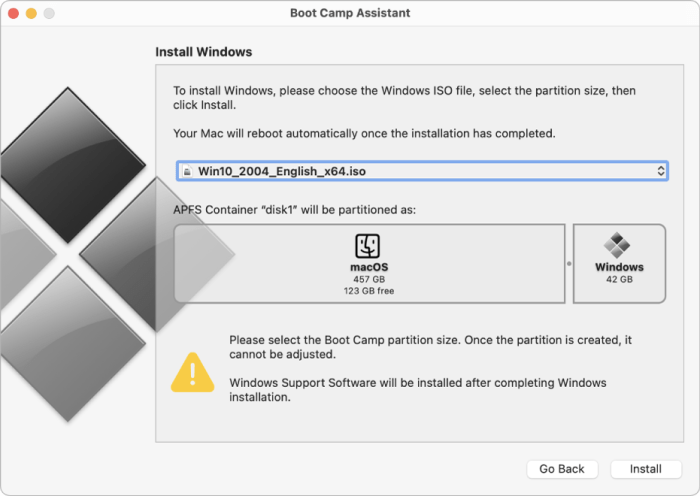Boot Camp A Comprehensive Guide
Boot camps offer intensive, accelerated training in various fields, transforming aspiring professionals into skilled individuals ready for the workforce. This guide delves into the diverse world of boot camps, exploring their structures, methodologies, and career implications. We’ll examine different boot camp types, comparing their curricula, costs, and potential career paths. The focus will be on providing a clear understanding of what makes boot camps a viable and effective pathway to professional development.
From the rigorous curriculum design to the diverse learning methodologies employed, we’ll uncover the key elements that contribute to the success of these intensive programs. We’ll also analyze the application process, the typical weekly schedule, and the overall effectiveness of different teaching approaches. This in-depth analysis will equip readers with the knowledge necessary to make informed decisions about pursuing a boot camp experience.
Types of Boot Camps

Boot camps offer intensive, short-term training programs focused on specific in-demand skills. They provide a fast track to career advancement or a change in career trajectory, differing significantly from traditional educational pathways in their intensity and focus. The variety of boot camps available reflects the diverse needs of the modern job market.
Boot camps cater to a wide range of career aspirations, each with its own unique curriculum, duration, and cost. The choice depends heavily on individual career goals and financial resources.
Boot Camp Types and Characteristics
Several types of boot camps exist, each specializing in a distinct field. The following table summarizes key differences in duration, cost, and potential career paths.
| Boot Camp Type | Typical Duration | Typical Cost (USD) | Typical Career Paths |
|---|---|---|---|
| Coding Bootcamp (Full Stack Web Development) | 12-16 weeks | $10,000 – $20,000 | Web Developer, Front-End Developer, Back-End Developer, Full-Stack Developer |
| Data Science Bootcamp | 12-16 weeks | $12,000 – $22,000 | Data Analyst, Data Scientist, Machine Learning Engineer, Data Engineer |
| Cybersecurity Bootcamp | 8-12 weeks | $8,000 – $15,000 | Security Analyst, Penetration Tester, Security Engineer, Cybersecurity Architect |
| UX/UI Design Bootcamp | 8-12 weeks | $7,000 – $14,000 | UX Designer, UI Designer, UX Researcher, UX Writer |
| Digital Marketing Bootcamp | 4-8 weeks | $5,000 – $10,000 | Digital Marketing Manager, Specialist, SEM Specialist, Social Media Manager |
Curriculum Design Differences
Curriculum design significantly varies across boot camp types. Coding boot camps, for instance, emphasize programming languages (like Python, JavaScript, Java), frameworks (React, Angular, Node.js), and database management. Data science boot camps focus on statistical analysis, machine learning algorithms, data visualization, and big data technologies. Cybersecurity boot camps cover network security, ethical hacking, cryptography, and incident response. Each boot camp tailors its curriculum to the specific skills required in its respective field.
Coding Bootcamp Application and Enrollment Process
The application and enrollment process for a coding boot camp typically follows a structured sequence. The following flowchart illustrates this process.
Imagine a flowchart with these steps:
1. Research and Selection: The applicant researches different coding boot camps, comparing curriculum, cost, and reviews.
2. Application Submission: The applicant completes and submits the application form, including personal information, resume, and sometimes a coding challenge or portfolio.
3. Interview and Assessment: The boot camp conducts interviews and assessments to evaluate the applicant’s suitability and potential. This might involve technical questions, coding challenges, or behavioral questions.
4. Acceptance and Enrollment: If accepted, the applicant receives an offer of admission and completes the enrollment process, paying tuition fees and completing any necessary paperwork.
5. Onboarding and Course Start: The applicant participates in onboarding activities and begins the intensive coding boot camp curriculum.
Curriculum and Learning Methods

Boot camp curricula are designed for rapid skill acquisition, emphasizing practical application over theoretical knowledge. The learning methods employed reflect this focus, prioritizing hands-on experience and collaborative learning environments. A well-structured curriculum and effective teaching approaches are crucial for successful boot camp outcomes.
Effective boot camps utilize a variety of pedagogical approaches to cater to different learning styles and maximize knowledge retention. These methods are carefully integrated to create a dynamic and engaging learning experience.
Learning Methodologies
Boot camps commonly employ several key learning methodologies. Project-based learning forms a cornerstone, allowing students to apply newly acquired skills to real-world scenarios. This approach fosters problem-solving abilities and builds a practical portfolio. Pair programming, where students work collaboratively on coding tasks, enhances teamwork, debugging skills, and knowledge sharing. Lectures, while present, are often concise and focused on providing foundational knowledge or introducing new concepts before hands-on application. Other methods, such as workshops, guest speakers, and independent study, further enhance the learning experience, offering diverse avenues for skill development.
Curriculum Structure
A typical boot camp curriculum is structured progressively, building upon foundational knowledge and skills. It generally begins with an introduction to the core programming concepts and gradually progresses towards more advanced topics and specialized skills. The curriculum is usually divided into modules, each focusing on a specific area of expertise. For example, a web development boot camp might start with HTML, CSS, and JavaScript fundamentals, then move on to more advanced front-end frameworks like React or Angular, and finally integrate back-end technologies such as Node.js or Python/Django. The final stages often involve building a capstone project that allows students to demonstrate their comprehensive skills.
Sample Weekly Schedule
The following is a sample weekly schedule for a front-end web development boot camp. This is a general example and specific schedules will vary based on the boot camp’s intensity and curriculum:
- Monday: HTML fundamentals, semantic HTML, basic website structure.
- Tuesday: CSS fundamentals, selectors, box model, responsive design introduction.
- Wednesday: JavaScript fundamentals, variables, data types, control flow.
- Thursday: JavaScript DOM manipulation, event handling, asynchronous JavaScript.
- Friday: Project work: building a simple webpage incorporating HTML, CSS, and JavaScript.
Comparison of Teaching Approaches
The effectiveness of different teaching approaches varies depending on the learner and the specific subject matter. Project-based learning, for example, excels at developing practical skills and problem-solving abilities, but may require more time and independent learning. Pair programming fosters collaboration and debugging skills but can be less efficient for individuals who prefer independent work. Lectures provide a structured introduction to new concepts but can be less engaging if not supplemented with hands-on activities. A successful boot camp curriculum strategically combines these methods to create a balanced and effective learning environment. For instance, a lecture introducing a new framework might be immediately followed by a hands-on project using that framework, reinforcing learning through immediate application.
Ultimate Conclusion

Ultimately, boot camps represent a dynamic and evolving approach to education and professional training. By understanding the nuances of different boot camp types, their curricula, and the various learning methodologies employed, individuals can effectively assess whether this intensive learning environment aligns with their career aspirations. This guide has aimed to provide a thorough overview, empowering readers to make informed choices about this increasingly popular pathway to professional success.
Popular Questions
What is the average job placement rate for boot camp graduates?
Job placement rates vary significantly depending on the boot camp, its specialization, and the job market. Research individual boot camp statistics for accurate information.
Are boot camps worth the cost?
The value of a boot camp depends on individual circumstances and career goals. Weigh the cost against potential salary increases and career advancement opportunities.
How can I finance a boot camp?
Many boot camps offer financing options, including loans and scholarships. Explore options like Income Share Agreements (ISAs) and traditional student loans.
What if I don’t have a prior background in technology?
Many boot camps accept students with varying levels of prior experience. Some programs are specifically designed for beginners.




